Abstract
1. Caffeine (10 mM)-induced relaxation of guinea-pig isolated trachealis was attenuated and converted to a small spasmogenic response on cooling to 22 degrees C. The relaxant response was restored on rewarming to 37 degrees C and was abolished by indomethacin (2.8 microM). Cooling to 22 degrees C in the presence of indomethacin revealed spasmogenic responses to caffeine which were abolished on rewarming to 37 degrees C. 2. Trachealis treated with indomethacin (2.8 microM) was repeatedly dosed with acetylcholine (ACh, 10 microM). Caffeine (1 or 10 mM), added as each ACh-induced spasm reached equilibrium, transiently augmented but then suppressed the spasm. On cooling from 37 degrees C to 12 degrees C, the increment in spasm evoked by caffeine increased relative to the spasm evoked by ACh. 3. Trachealis treated with indomethacin (2.8 microM) was repeatedly dosed with caffeine (10 mM). At 37 degrees C caffeine had little effect but it caused spasm when the tissue was cooled to 32 degrees C. Spasm amplitude increased as cooling progressed to 12 degrees C. Similar results were obtained with caffeine (1 mM). 4. At 37 degrees C, caffeine, enprofylline, 1,3,7,9-tetramethylxanthinium (TMX), theobromine, theophylline, xanthine and forskolin each caused concentration-dependent suppression of tracheal tone. Among the xanthine derivatives the rank order of potency was enprofylline greater than theophylline greater than caffeine greater than theobromine greater than xanthine greater than TMX. 5. In trachealis treated with indomethacin (2.8 microM) and maintained at 12 degrees C, the xanthines each caused concentration-dependent spasm. The rank order of potency was theobromine greater than or equal to theophylline greater than or equal to caffeine greater than or equal to enprofylline greater than xanthine greater than TMX. Forskolin was devoid of spasmogenic activity. 6. Trachealis treated with indomethacin (2.8 microM) and maintained at 12 degrees C, was repeatedly dosed with either caffeine (10 mM) or potassium chloride (KCl, 40 mM). Caffeine-induced spasm was attenuated in a Ca2+-free medium containing EGTA (2 mM), modestly at first but subsequently more profoundly. KCl did not evoke spasm at 12 degrees C but at 37 degrees C the KCl-induced spasm was virtually abolished at its first trail in the Ca2+-free, EGTA-containing medium. 7. It is concluded that caffeine, other alkylated xanthines and xanthine itself share a spasmogenic action in guinea-pig isolated trachealis which is best observed when the tissue is treated with indomethacin (2.8 microM) and maintained at 12 degrees C.(ABSTRACT TRUNCATED AT 400 WORDS)
Full text
PDF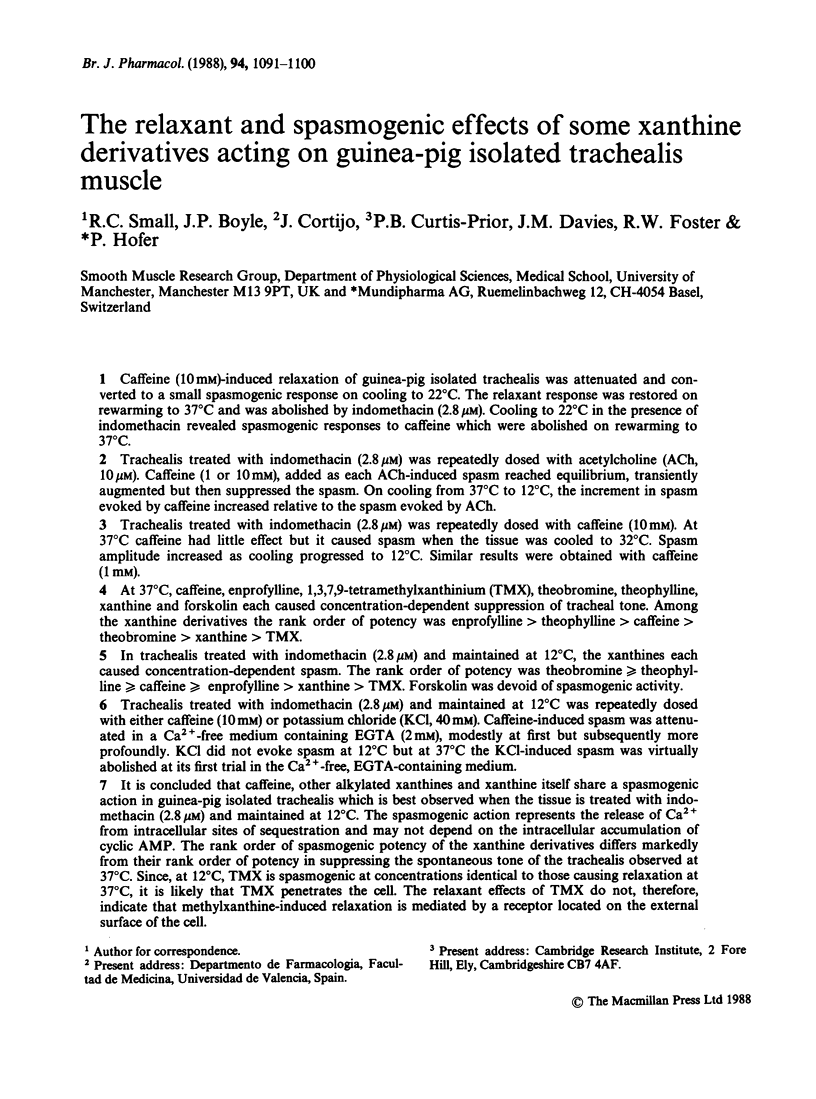
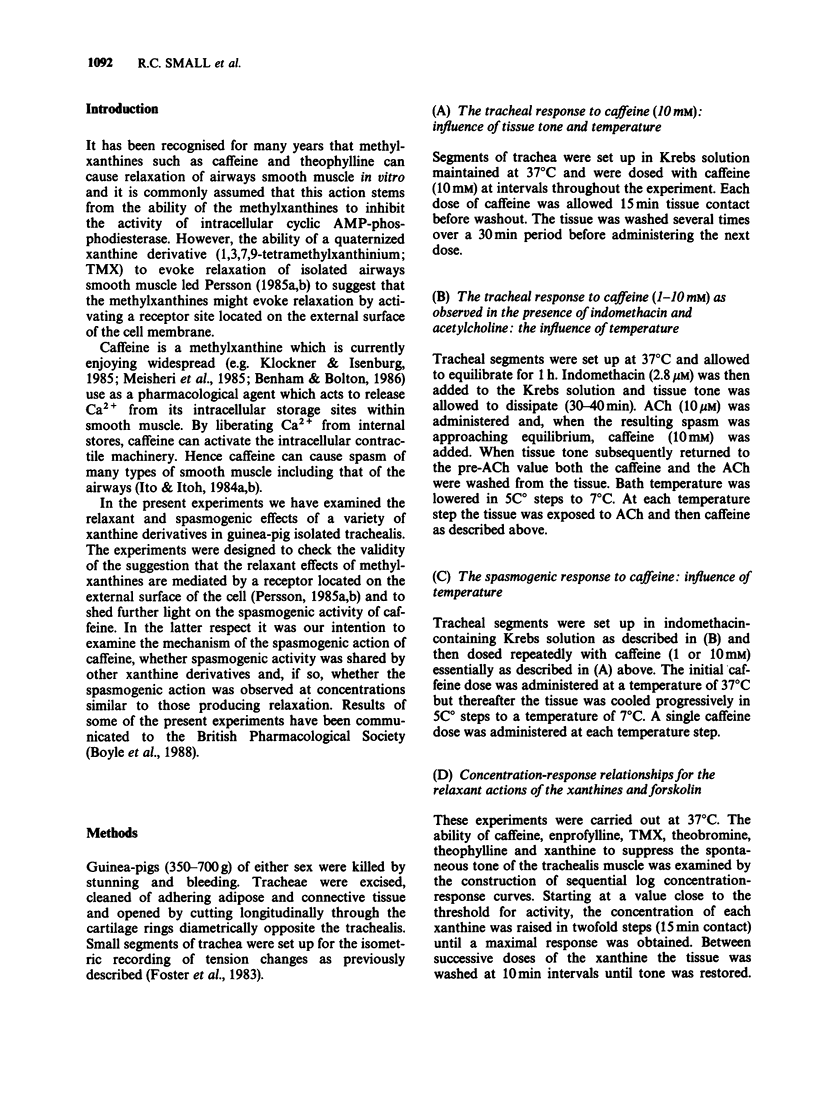
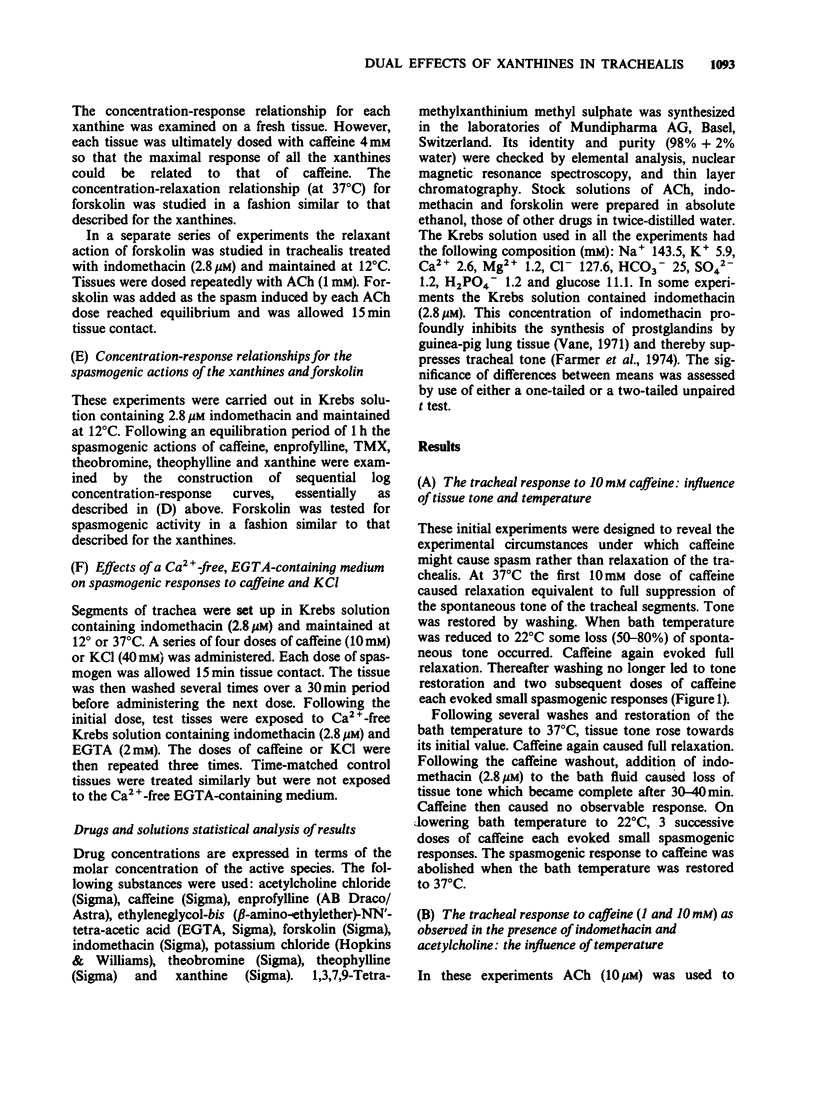
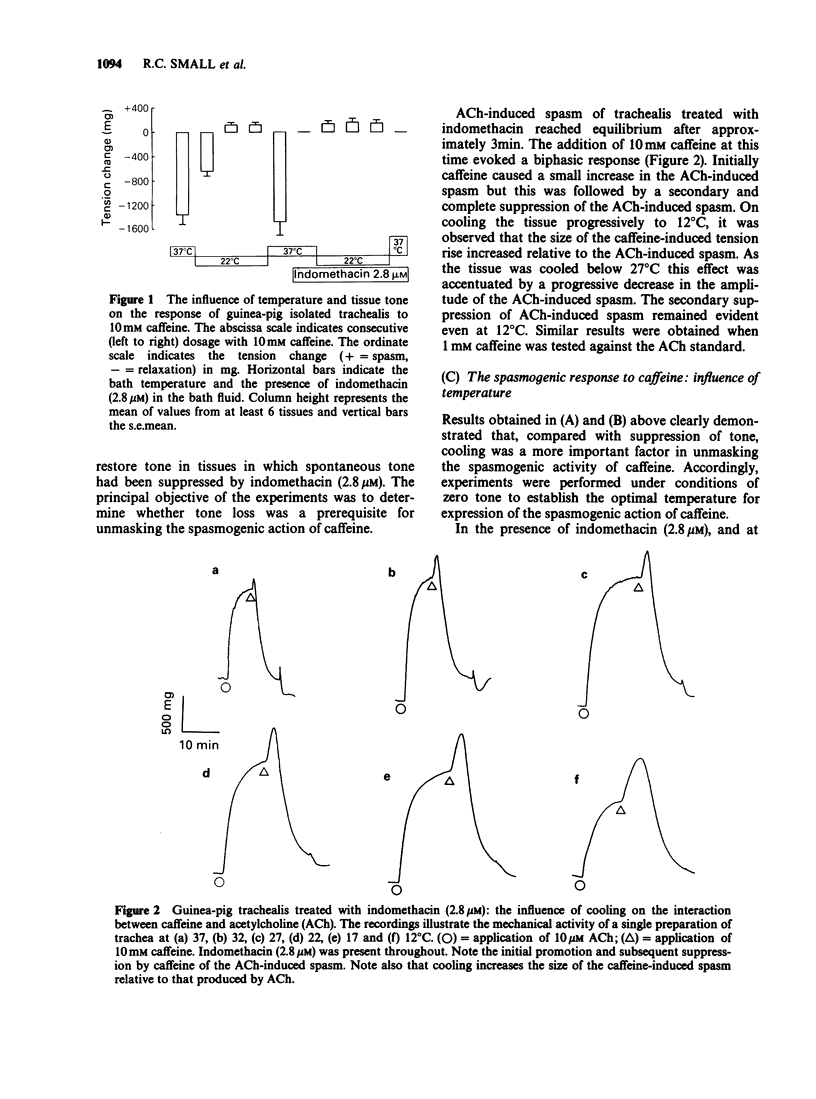
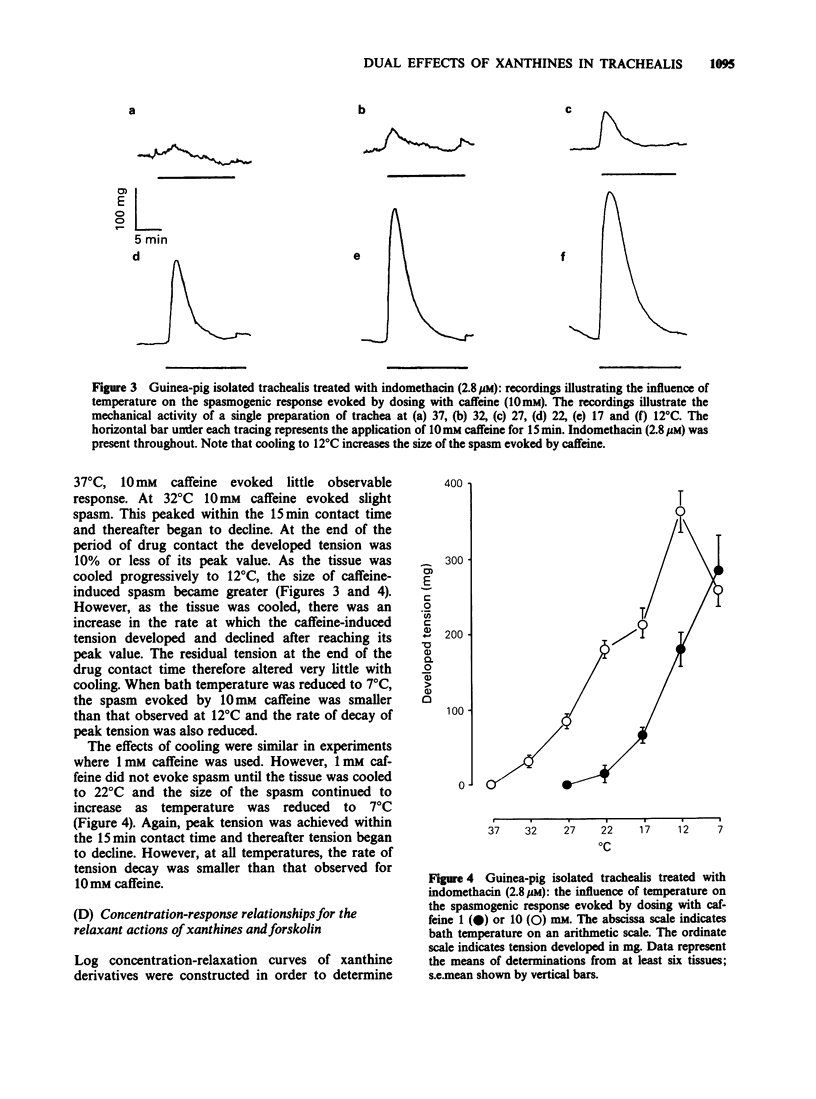
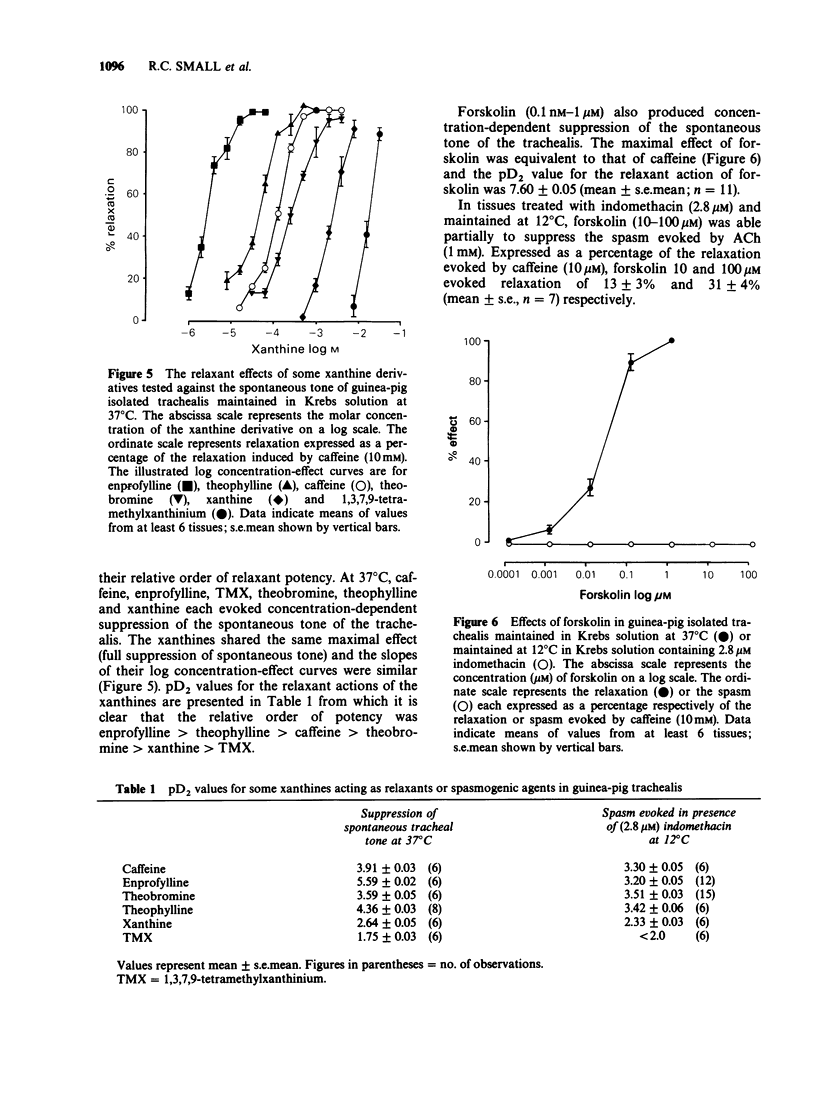
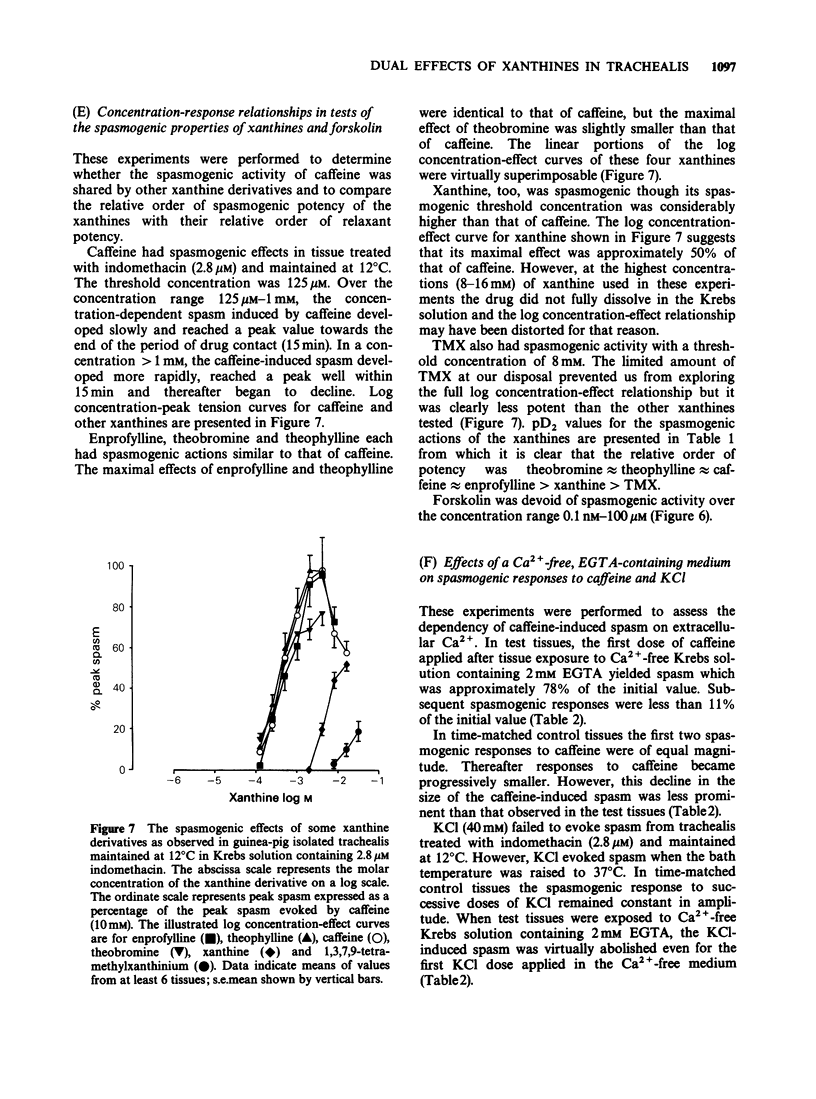
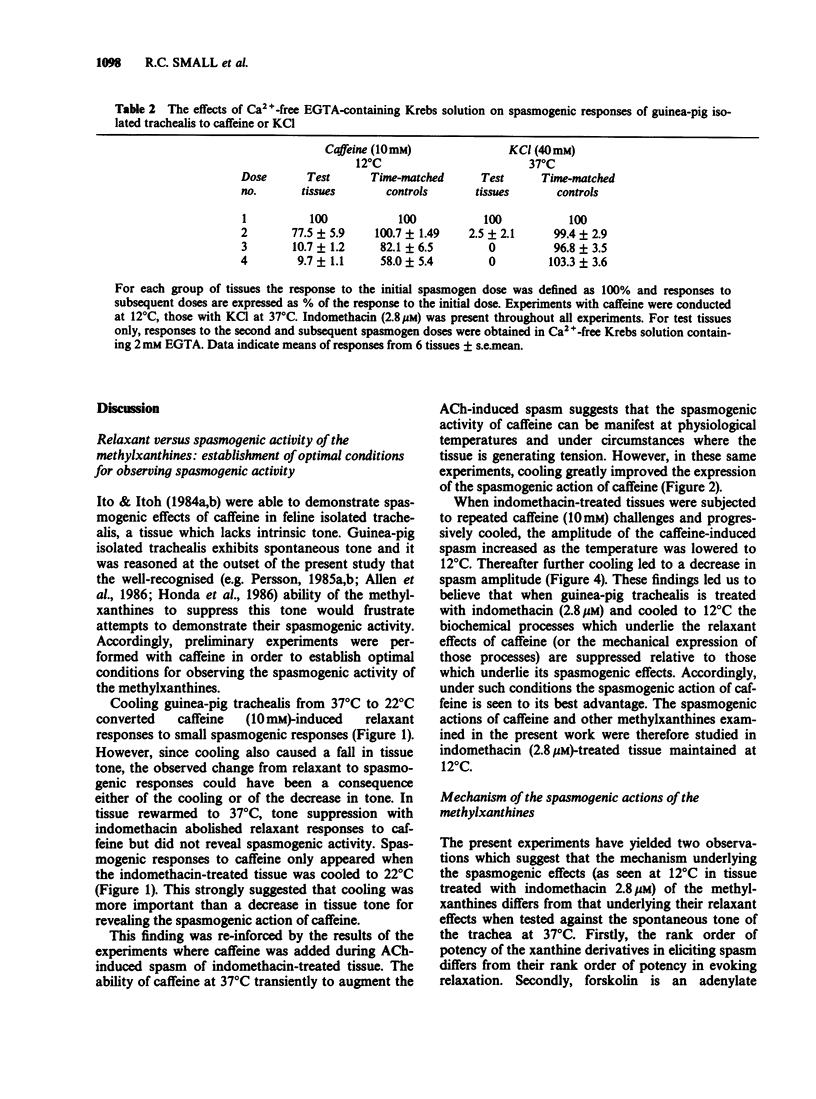
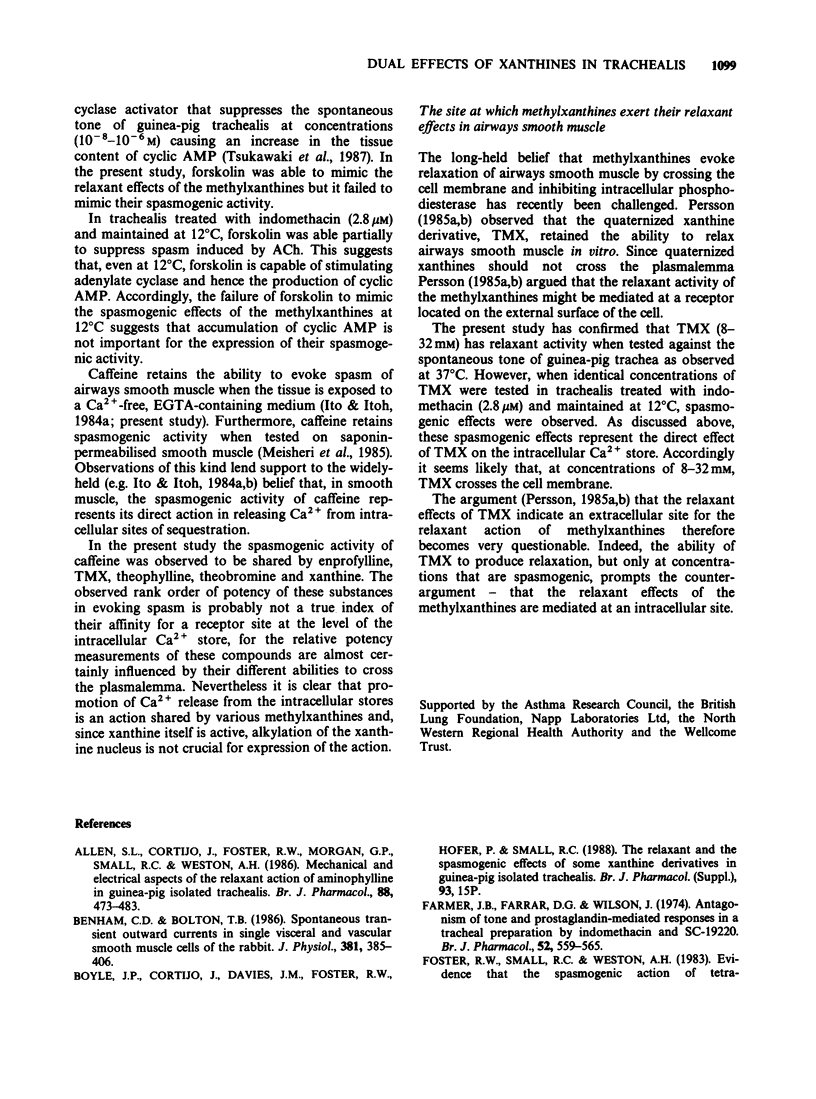
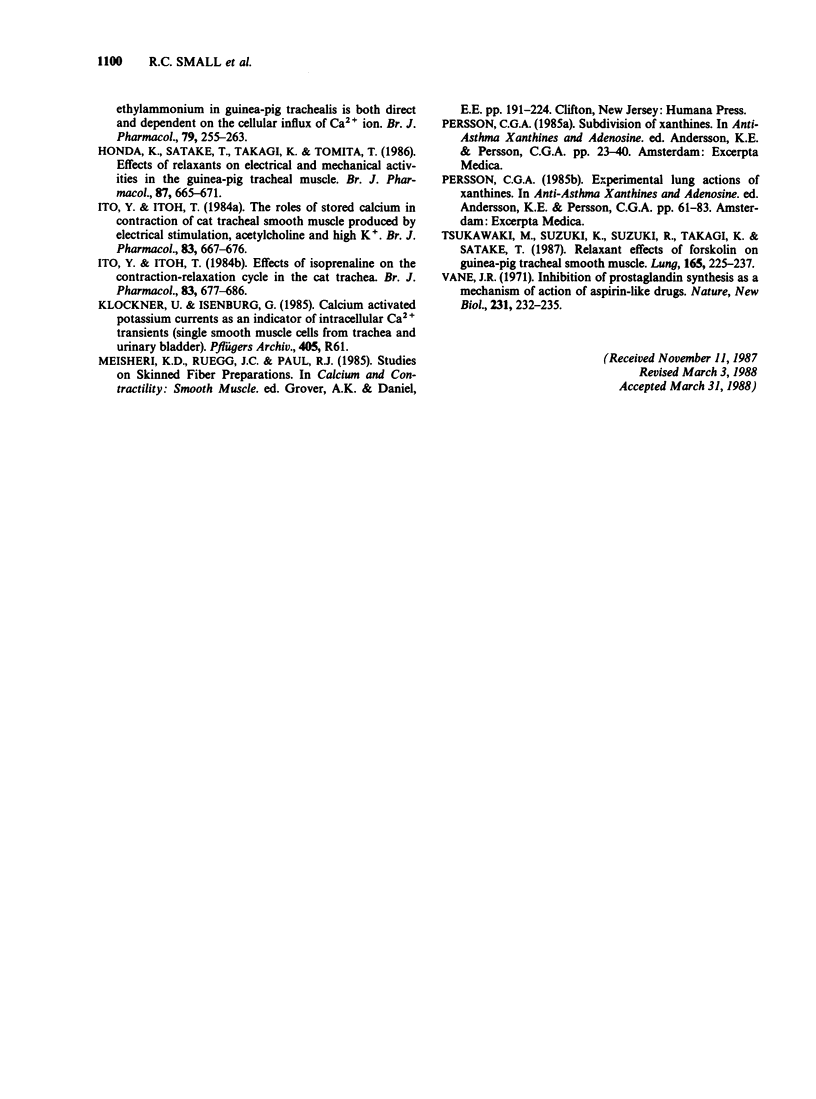
Selected References
These references are in PubMed. This may not be the complete list of references from this article.
- Allen S. L., Cortijo J., Foster R. W., Morgan G. P., Small R. C., Weston A. H. Mechanical and electrical aspects of the relaxant action of aminophylline in guinea-pig isolated trachealis. Br J Pharmacol. 1986 Jun;88(2):473–483. doi: 10.1111/j.1476-5381.1986.tb10226.x. [DOI] [PMC free article] [PubMed] [Google Scholar]
- Benham C. D., Bolton T. B. Spontaneous transient outward currents in single visceral and vascular smooth muscle cells of the rabbit. J Physiol. 1986 Dec;381:385–406. doi: 10.1113/jphysiol.1986.sp016333. [DOI] [PMC free article] [PubMed] [Google Scholar]
- Farmer J. B., Farrar D. G., Wilson J. Antagonism of tone and prostaglandin-mediated responses in a tracheal preparation by indomethacin and SC-19220. Br J Pharmacol. 1974 Dec;52(4):559–565. doi: 10.1111/j.1476-5381.1974.tb09724.x. [DOI] [PMC free article] [PubMed] [Google Scholar]
- Foster R. W., Small R. C., Weston A. H. Evidence that the spasmogenic action of tetraethylammonium in guinea-pig trachealis is both direct and dependent on the cellular influx of calcium ion. Br J Pharmacol. 1983 May;79(1):255–263. doi: 10.1111/j.1476-5381.1983.tb10519.x. [DOI] [PMC free article] [PubMed] [Google Scholar]
- Honda K., Satake T., Takagi K., Tomita T. Effects of relaxants on electrical and mechanical activities in the guinea-pig tracheal muscle. Br J Pharmacol. 1986 Apr;87(4):665–671. doi: 10.1111/j.1476-5381.1986.tb14583.x. [DOI] [PMC free article] [PubMed] [Google Scholar]
- Ito Y., Itoh T. Effects of isoprenaline on the contraction-relaxation cycle in the cat trachea. Br J Pharmacol. 1984 Nov;83(3):677–686. doi: 10.1111/j.1476-5381.1984.tb16221.x. [DOI] [PMC free article] [PubMed] [Google Scholar]
- Ito Y., Itoh T. The roles of stored calcium in contractions of cat tracheal smooth muscle produced by electrical stimulation, acetylcholine and high K+. Br J Pharmacol. 1984 Nov;83(3):667–676. doi: 10.1111/j.1476-5381.1984.tb16220.x. [DOI] [PMC free article] [PubMed] [Google Scholar]
- Tsukawaki M., Suzuki K., Suzuki R., Takagi K., Satake T. Relaxant effects of forskolin on guinea pig tracheal smooth muscle. Lung. 1987;165(4):225–237. doi: 10.1007/BF02714440. [DOI] [PubMed] [Google Scholar]
- Vane J. R. Inhibition of prostaglandin synthesis as a mechanism of action for aspirin-like drugs. Nat New Biol. 1971 Jun 23;231(25):232–235. doi: 10.1038/newbio231232a0. [DOI] [PubMed] [Google Scholar]


